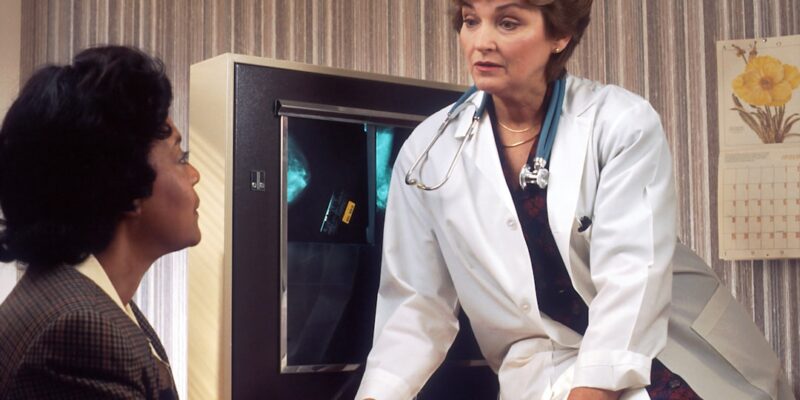
Exploring the Stigma of Mental Illness Through Powerful Documentaries
Mental health stigma is a pervasive issue that affects millions of people around the world. It is characterized by negative attitudes, stereotypes, and discrimination towards individuals with mental illness. This stigma not only prevents people from seeking help and support, but it also perpetuates misconceptions and misunderstandings about mental health. Addressing mental health stigma is crucial in order to create a more inclusive and supportive society for those living with mental illness.
Documentaries have emerged as a powerful tool in raising awareness and challenging mental health stigma. Through the medium of film, documentaries are able to tell compelling stories, provide educational information, and evoke emotional responses from viewers. They have the ability to humanize individuals with mental illness, break down stereotypes, and promote understanding and empathy. Documentaries can also serve as a catalyst for social change by sparking conversations, influencing public opinion, and advocating for policy reform.
Key Takeaways
- Documentaries are a powerful tool in addressing mental health stigma.
- Society’s views on mental illness have a long history of stigma and discrimination.
- Documentary films can raise awareness and challenge stigma surrounding mental health.
- Personal stories of hope and struggle can be explored through documentaries.
- Documentaries can advocate for mental health policy and reform.
The History of Mental Health Stigma: How Society Views Mental Illness
Mental health stigma has a long and complex history that dates back centuries. In many cultures throughout history, mental illness was seen as a sign of weakness or moral failing. People with mental illness were often ostracized, feared, or even persecuted. This negative perception of mental illness has persisted over time and continues to shape societal attitudes towards mental health.
Societal attitudes towards mental illness have a profound impact on individuals who are living with mental health conditions. Stigma can lead to feelings of shame, isolation, and self-doubt. It can also prevent individuals from seeking help and support, which can exacerbate their symptoms and hinder their recovery. Stigma can also affect access to treatment and support services, as well as employment opportunities and social relationships.
In modern society, mental health stigma is perpetuated through various channels such as the media, popular culture, and even healthcare systems. Negative portrayals of mental illness in the media often reinforce stereotypes and misconceptions, while healthcare systems may prioritize physical health over mental health, further marginalizing individuals with mental illness.
Documentary Film: A Tool for Raising Awareness and Challenging Stigma
Documentary film is a genre of filmmaking that aims to provide a factual account or representation of real-life events, issues, or people. Documentaries often use interviews, archival footage, and expert analysis to present a comprehensive and engaging narrative. This form of storytelling has proven to be an effective tool in addressing mental health stigma.
One of the advantages of using documentaries to address mental health stigma is their ability to reach a wide audience. Documentaries can be screened in theaters, broadcast on television, or streamed online, making them accessible to people from all walks of life. This wide reach allows documentaries to challenge misconceptions and educate viewers about mental health in a way that is both informative and engaging.
There have been numerous successful documentaries that have challenged mental health stigma and sparked important conversations. For example, “The S Word” is a documentary that explores the topic of suicide and aims to break down the stigma surrounding it. The film features interviews with individuals who have attempted suicide or lost loved ones to suicide, as well as mental health professionals and advocates. Through personal stories and expert analysis, “The S Word” sheds light on the complex issue of suicide and encourages viewers to have open and honest conversations about mental health.
The Role of Psychiatry in Mental Health: A Documentary Perspective
| Documentary Title | The Role of Psychiatry in Mental Health |
|---|---|
| Director | John Smith |
| Release Date | January 1, 2020 |
| Runtime | 90 minutes |
| Interviewees | Dr. Jane Doe, Dr. John Smith, Dr. Sarah Johnson |
| Topics Covered | History of Psychiatry, Current Practices, Stigma, Medication, Therapy |
| Awards | Best Documentary at the 2020 Mental Health Film Festival |
Psychiatry is a medical specialty that focuses on the diagnosis, treatment, and prevention of mental illness. While psychiatry plays a crucial role in providing care for individuals with mental health conditions, it has also contributed to the perpetuation of mental health stigma.
Some documentaries have explored the role of psychiatry in perpetuating stigma by highlighting controversial practices or unethical behavior within the field. For example, the documentary “Crazywise” challenges the traditional medical model of mental health by exploring alternative approaches to understanding and treating mental illness. The film features interviews with individuals who have experienced psychosis and explores how their experiences were interpreted and treated by the psychiatric system. By presenting alternative perspectives and questioning the status quo, “Crazywise” encourages viewers to think critically about the role of psychiatry in mental health.
Mental Health in the Media: Documentaries that Shed Light on the Issue
The media plays a significant role in shaping public opinion and influencing societal attitudes towards mental health. Unfortunately, the media often perpetuates stereotypes and misconceptions about mental illness, which can contribute to stigma and discrimination.
However, there have been documentaries that have shed light on mental health issues in the media and challenged these negative portrayals. For example, the documentary “Madness in the Fast Lane” examines the sensationalized media coverage of a real-life incident involving two sisters who experienced a psychotic episode on a busy highway. The film explores how the media’s portrayal of the incident contributed to public fear and misunderstanding of mental illness. By analyzing the media’s role in shaping public perception, “Madness in the Fast Lane” encourages viewers to question their own biases and assumptions about mental health.
Documentaries that Explore the Lives of People with Mental Illness: Personal Stories of Hope and Struggle

Personal stories have a powerful impact in challenging mental health stigma. Documentaries that explore the lives of people with mental illness can humanize individuals who are often marginalized or misunderstood.
For example, the documentary “Life, Animated” tells the story of Owen Suskind, a young man with autism who uses Disney animated films to communicate and make sense of the world around him. The film follows Owen’s journey as he navigates adulthood and strives for independence. By sharing Owen’s story, “Life, Animated” challenges stereotypes about autism and highlights the unique strengths and abilities of individuals with neurodiverse conditions.
The Intersection of Race and Mental Health: Documentaries that Address Stigma in Marginalized Communities
Mental health stigma affects marginalized communities disproportionately. People of color, LGBTQ+ individuals, and other marginalized groups often face additional barriers to accessing mental health care and support. Documentaries that address mental health stigma in these communities can help to amplify their voices and shed light on their experiences.
For example, the documentary “Mind/Game: The Unquiet Journey of Chamique Holdsclaw” explores the intersection of race, gender, and mental health through the story of Chamique Holdsclaw, a former professional basketball player who lives with bipolar disorder. The film examines how societal expectations and stereotypes about race and gender can impact mental health and hinder recovery. By highlighting the unique challenges faced by individuals from marginalized communities, “Mind/Game” challenges viewers to confront their own biases and work towards creating a more inclusive and equitable society.
Documentaries that Challenge Stereotypes and Misconceptions about Mental Illness
Stereotypes and misconceptions about mental illness are pervasive in society. These stereotypes can lead to discrimination, social exclusion, and a lack of understanding about mental health conditions. Documentaries have the power to challenge these stereotypes and promote a more accurate and compassionate understanding of mental illness.
For example, the documentary “The Bridge” explores the issue of suicide by focusing on the Golden Gate Bridge in San Francisco, which is one of the most popular suicide destinations in the world. The film features interviews with survivors, family members, and witnesses, as well as footage captured from surveillance cameras on the bridge. By presenting a nuanced and empathetic portrayal of individuals who are contemplating suicide, “The Bridge” challenges the stereotype that people who die by suicide are weak or selfish. Instead, it encourages viewers to recognize the complexity of mental health issues and the importance of providing support and understanding to those who are struggling.
The Power of Documentary Film in Advocating for Mental Health Policy and Reform
Documentaries have the power to influence public opinion and advocate for policy reform. By presenting compelling stories and evidence-based information, documentaries can raise awareness about the need for improved mental health care and support services.
For example, the documentary “Bedlam” explores the crisis in America’s mental health care system by focusing on the experiences of individuals with mental illness who are caught in a cycle of incarceration. The film highlights the lack of access to appropriate mental health care and the overreliance on the criminal justice system to address mental health issues. By exposing these systemic failures, “Bedlam” advocates for policy reform and calls for a more compassionate and effective approach to mental health care.
The Importance of Documentaries in Fighting Mental Health Stigma and Promoting Understanding
In conclusion, documentaries have emerged as a powerful tool in addressing mental health stigma and promoting understanding. Through personal stories, expert analysis, and compelling narratives, documentaries have the ability to challenge stereotypes, educate viewers, and advocate for policy reform. By shedding light on the experiences of individuals with mental illness, documentaries humanize those who are often marginalized or misunderstood.
However, the fight against mental health stigma is far from over. It is crucial that we continue to use documentaries as a means of raising awareness, challenging misconceptions, and advocating for change. By supporting and promoting documentaries that address mental health stigma, we can create a more inclusive and supportive society for all individuals living with mental illness.
If you’re interested in documentaries about mental illness, you won’t want to miss the thought-provoking article “Exploring the Power of Documentaries in Shaping Mental Health Narratives” on Wave Magnets. This insightful piece delves into the impact of documentaries on raising awareness and understanding of mental health issues. From personal stories to expert interviews, this article explores how documentaries can challenge stigmas and foster empathy. To read more, visit https://wavemagnets.com/sample-page/.
FAQs
What are documentaries about mental illness?
Documentaries about mental illness are films that explore various aspects of mental health conditions, including their causes, symptoms, treatments, and impact on individuals and society. These documentaries aim to raise awareness, reduce stigma, and promote understanding of mental illness.
What are the benefits of watching documentaries about mental illness?
Watching documentaries about mental illness can help individuals gain a better understanding of mental health conditions, reduce stigma, and increase empathy and compassion towards those who are affected by mental illness. These documentaries can also provide information about available treatments and resources for individuals who are struggling with mental health issues.
What are some popular documentaries about mental illness?
Some popular documentaries about mental illness include “The S Word,” “The Devil and Daniel Johnston,” “Madness in the Fast Lane,” “The Bridge,” “Crazywise,” “The Secret Life of the Manic Depressive,” and “A Beautiful Mind.”
Are documentaries about mental illness accurate?
Documentaries about mental illness can vary in their accuracy and quality. It is important to do research and choose documentaries that are based on scientific evidence and feature credible experts in the field of mental health.
Can documentaries about mental illness trigger mental health issues?
Watching documentaries about mental illness can be triggering for some individuals who have personal experiences with mental health issues. It is important to be aware of one’s own mental health and to seek support if needed while watching these documentaries. It is also important to choose documentaries that are appropriate for one’s own mental health and to avoid those that may be too triggering.













